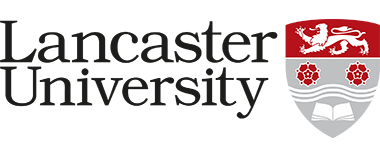Learning Opportunities and Resources
Dyslexia and Inclusive Practice: Professional Learning Resource
Improving Practice and Empowering Whole School Approaches to Support Learners
A reflective and evaluative professional learning approach to improve practice and empower whole school approaches to support learners
This professional learning resource has been developed by Education Scotland, the Making Sense Working Group and stakeholders to support practitioners, schools and local authorities to.
- improve the quality of educational outcomes for learners with dyslexia through collaborative enquiry and effective self-evaluation
- evidence the impact of the collaborative enquiry through evidenced based improvements
- fulfil statutory duties
- support professional learning on Inclusive practice
- further develop inclusive practice for all learners within the school community
- build on partnerships within the Regional Improvement Collaboratives (RICs), developing opportunities to share practice and reduce duplication of resource development.
The level of awareness and readiness for change will vary across schools and local authorities and this resource can be used to focus on specific areas for improvement to contribute to whole school inclusive practice.
The Dyslexia and Inclusive Practice: Professional Learning Resource has been developed to support all five recommendations from the Making Sense report. However, there is a focus on Recommendation 4 and in particular 4.4.
Below are some further suggestions of professional learning opportunities and resources. Click on the tabs for further information.
This free professional resource has been developed in response to the 2014 Education Scotland Review Making Sense Dyslexia: Education for Children and Young People with Dyslexia in Scotland which recommended that:
Education Scotland should work with Dyslexia Scotland and other relevant stakeholders to develop a comprehensive dyslexia professional learning package which can be used by local authorities to increase the capacity of teachers to meet learning needs.
This resource has been updated in 2020
Winner of the prestigious ELTons 2014 award for Excellence in course innovation

The DysTEFL materials comprise a whole course suitable not only for teachers of English as a foreign language, but also for anyone involved in language teaching. The materials can be used for self-study or to raise awareness of the learning needs of those with dyslexia when learning another language. The materials are suitable for pre- and in-service teachers as well as training institutions. There is a wide repertoire of useful teaching methods, techniques and tools in this package.
Supporting Bilingualism and EAL
This online learning opportunity has been developed in partnership with Education Scotland, Glasgow City Council and SCLIT (Scotland's National Centre for Languages). Click here for this free online module.
Teachers of foreign languages will find a range of useful information to help with language learning and inclusion in the foreign language classroom. Click here to visit Languages without Limits.
Professional development resource for staff in nursery and primary schools (every primary school in Scotland should have received a copy of this). Contact us for a PDF of the Count Me In pack, on toolkit@dyslexiascotland.org.uk.
Dyslexia at Transition is a Scottish Government funded, Dyslexia Scotland managed DVD. Designed by the University of Edinburgh, the DVD supports primary and secondary schools in their understanding of dyslexia and in their support of learners, especially at the transition stage from primary to secondary.
A copy was given to every primary and secondary school in Scotland.
Any schools wishing to order another copy of this DVD should contact: info@dyslexiascotland.org.uk
Fran Foreman (Ranaldi) and Paul Nisbet (CALL Scotland) have produced guidance on producing accessible text to ensure that children and young people with dyslexia gain appropriate access. See the resource to the left hand side of this page.
CALL Scotland won an award at the inaugural 'AAC Awards' Ceremony held at the University of Leeds on Friday 11th October 2019. These National awards were organised by Communication Matters, the UK wide organisation for Augmentative and Alternative Communication (AAC).
Representatives from CALL Scotland and the Scottish Book Trust attended the ceremony, along with Bookbug of course, and collected the 'Outstanding Community Inclusion' Award for their Bookbug symbolised resources and accessible digital versions of the Bookbug Family Bag books, which are gifted to every Primary 1 child in Scotland for National Book Week in November each year. For more details, visit the link below:
https://www.callscotland.org.uk/blog/call-scotland-scottish-book-trust-partnership-win-aac-award/
Packs of booklets on Supporting Pupils with Dyslexia in the Early Years and at Primary School have gone to every primary school in Scotland. Further details and information are available from Dyslexia Scotland's South East branch and the material can also be downloaded from Dyslexia Scotland's main website by Dyslexia Scotland members. For membership information see Dyslexia Scotland's website.
Packs of booklets for all subject teachers and a CD ROM have gone into every secondary school in Scotland. Further copies can be downloaded from the Dyslexia Scotland website. As for the Primary School packs, membership is requested.
This set of slides may help in a consideration of what is meant by literacy and how pupils can be supported in their literacy development. It should be noted that the strategies suggested work well for all pupils.
Reflective Reading
To view 'Dyspraxia, visual stress, and foreign language learning from a student's perspective' click here.
Suggested Reading on Neurodiversity
